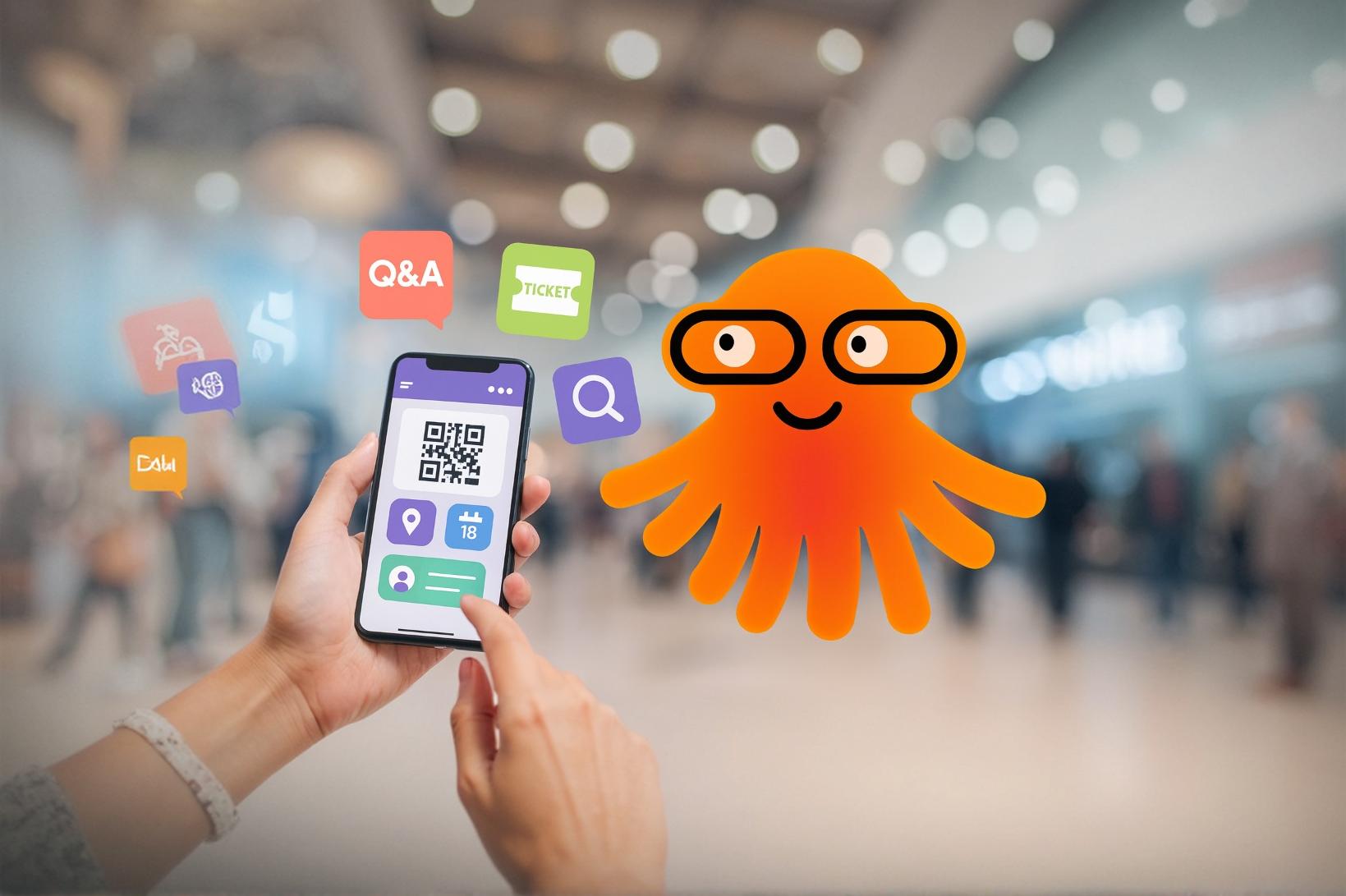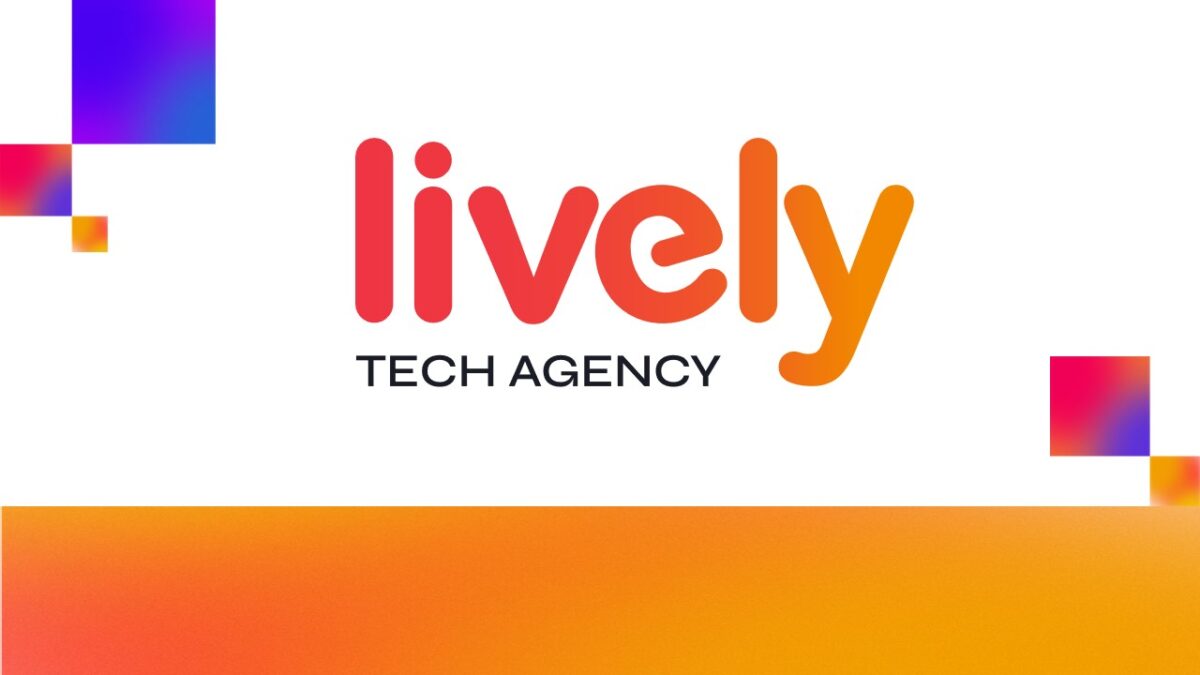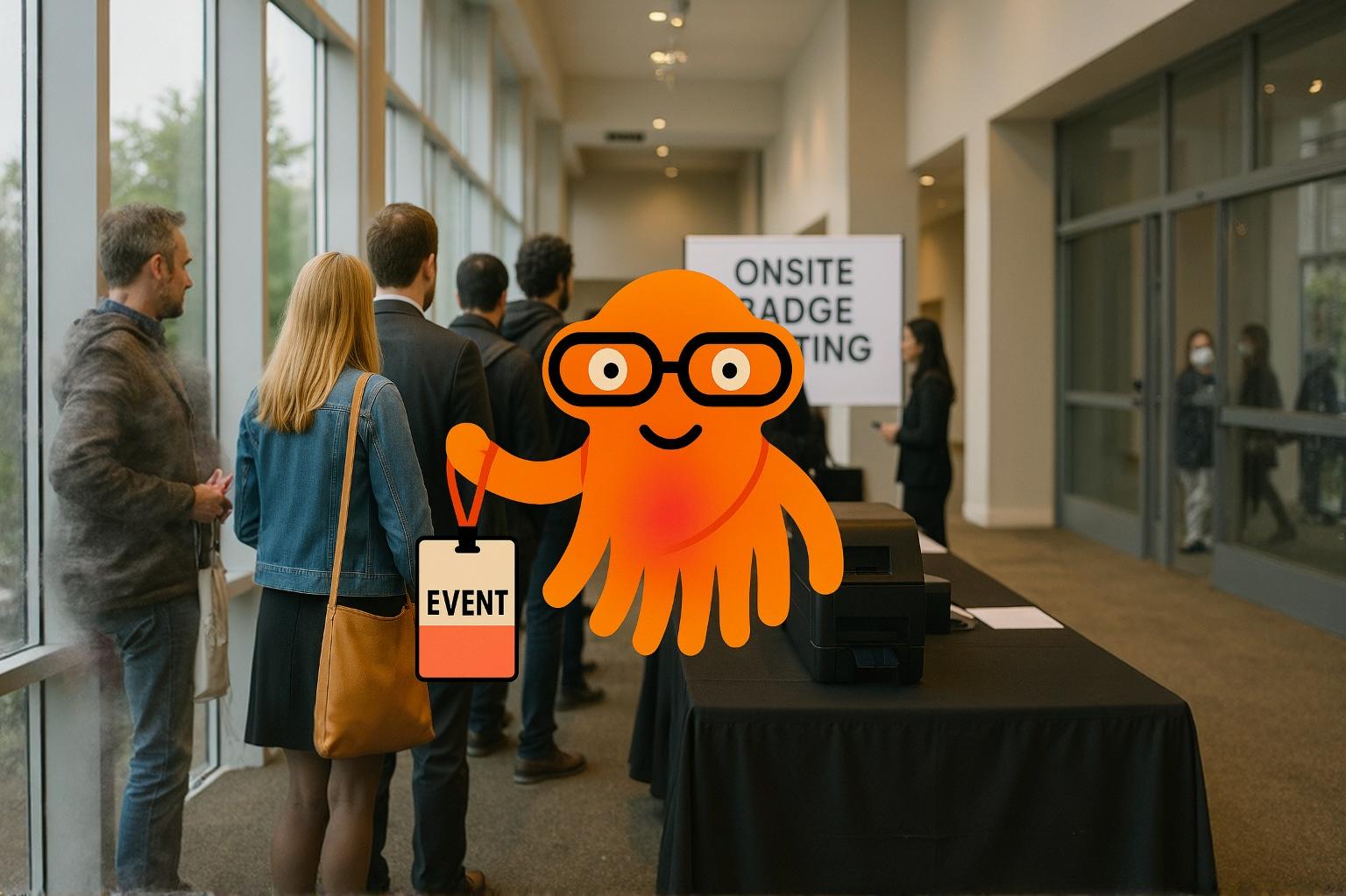The event tech trends of 2024: what awaits us

Updated on: Oct 1, 2024
As an event tech agency, we are constantly working on the latest technologies. That's why in this blog, we take a look at tomorrow's events and what new applications will dominate the event industry from next year. How will VR, AI and other smart event tech solutions change events as we know them? And how will technology provide more experience at events and a future-proof and efficient organization process in the coming year? We present 8 event tech trends that you, as an event organizer, want to take into account in 2024.
1. Event platforms are becoming increasingly complete
As an event organizer, you want to work with reliable technology that offers added value for your team and visitors. Event software helps you streamline the organization process and make the event more complete for your participants. But where do you start? There are simply a lot of options, too many maybe. Especially since the corona pandemic, event platforms have sprouted like mushrooms. That is why we are increasingly seeing the trend for event platforms and event software to move towards a serious marketing system. One full-cycle solution or all-in platform that not only contributes to your event, but also really adds something to your business processes. Consider, for example, linking participant data with Salesforce or Hubspot. From registration to event preferences and follow-up; everything is updated in real time. Or send email flows prior to your event, from the same system where you plan your events. The solutions are becoming increasingly innovative and complete. In the coming year, tools that focus on a smooth process, seamless integrations and scalable functionalities will gain ground.
“Especially since the corona pandemic, event platforms have sprouted like mushrooms. That is why we are increasingly seeing the trend for event platforms and event software to move towards a serious marketing system.”
2. Hybrid events are gaining even more ground
In recent years, many organizers have (forced) to learn about the possibilities of online events. And not without success. So it's no wonder that hybrid events are becoming increasingly popular. Various program components are ideal for translating to online. This offers a lot of possibilities: you create a wider reach and are not only limited to the percentage of live visitors to achieve your goals. What role does event tech play in this coming year? Technology contributes to a new way of interacting and gives visitors more space for their own input. Among other things, event apps, tools for matchmaking and interactive online participation ensure a complete, inclusive experience. Whether you're attending the event physically or digitally. Physical participants interact with online participants and vice versa. Hybrid events also reinforce the idea of sustainability and are cost-efficient for a larger audience. That's win-win!
3. A serious breakthrough in virtual reality
Virtual reality is quite a few years old, but has not really been adopted by the general public due to expensive, often complex technology. We may see that change in the coming year. VR glasses are becoming increasingly accessible, take the Apple Vision Pro, for example. Currently still in the shape of glasses, but maybe in a few years in a lens. We expect VR technology to grow enormously in the coming years. And the possibilities of VR for events are, quite rightly, enormous.
Imagine: wearing VR glasses or a lens, you step onto an exhibition floor or take a seat at an event. All from your familiar, home environment. Virtual studios or streaming locations for live presentations and demonstrations are being further developed. Progressive locations will even go one step further with the virtualize of their venue. Virtual locations are almost indistinguishable from reality thanks to the high technology and reach a global audience. You immediately reduce the ecological footprint, costs and time. The need for travel by project teams, suppliers, speakers and visitors is reduced to a minimum.
4. Networking with artificial intelligence
Networking, meetings and interaction; goals that are high on the list when visiting an event. Making valuable connections with the right people can be quite a quest at a major event. You increase the chance of this by using matchmaking based on smart software and AI. You can use this even before the event takes place. This development in event tech provides automatic matchmaking based on interests and your profile. All you need is the event app and an internet connection. Here you can see personal and AI-powered suggestions for relevant business meetings. You also have immediate insight into the agenda of available people and all information is made accessible via a mobile scan function. With the help of AI, you can create valuable encounters and help visitors achieve their goals.
5. The role of the event manager changes
Event managers have long ceased to be hired solely for the organization and execution of events. This more traditional role is becoming increasingly broad and requires a larger skillset from the professional. Knowledge of data management, event tech opportunities, creative concepts and content, marketing and social media. All aspects that used to lie with the marketer and are now coming together in one role. Event managers get more control and accountability over the entire process: from strategy and idea to all communication and creative decisions after the event. This also means that event organizers are increasingly tech savvy should be and start embracing the possibilities of event software. This is because this ensures a much more efficient organization process and more opportunities at your event! Delving into event tech and recognizing its value is step 1 towards more future-proof events with a much wider reach than before.
6. New look at content marketing
There is a lot to consider when it comes to content for (and through) events. For example, videos, presentations, recordings, photos, in-app content, podcasts and more. Due to the relevance and investment in these forms of content, you, as an event organizer, want to handle the content created carefully. Reusing event content smartly is a way to permanently be top of mind with your visitors. In the original or modified form, you can re-create contact moments with your target group. For example, make your content exclusive to members via a subscription form. Here they download all materials such as presentations and extra content. You create value for visitors and provide an additional revenue model. Through various marketing channels, you promote content and point out the possibility to subscribe. Collaborate with speakers, hosts, and other relevant people for greater reach among your target audience.
7. Language barriers? Think again!
Events are inextricably linked to experience and interaction. At international events, it is the visitor who adapts to the chosen language for communication. Around events, communication is an important part of the experience and interaction. If the message does not come across well or partially, you are missing the point and the visitor does not have a complete picture of the possibilities. Fortunately, this is about to change. With real-time translations, spoken text is directly translated into the visitors' preferred language. The possibilities range from headphones to videos that reach a global audience through smart technology after a translation. With AI tools like HeyGen, it even goes so far as to mimic mouth movements for a one-on-one experience. What this means for your event? You will soon be able to distribute your Dutch-language event in all languages imaginable afterwards in one fell swoop.
Here's an example of video translations with AI in practice:
8. A clear overview of the carbon footprint
The Netherlands wants to emit a total of 55% fewer greenhouse gases by 2030 than in 1990, a joint task that the event industry must also contribute to. And our industry is not exactly known for its sustainable nature. In the coming years, we will see technologies that make a positive contribution to this. For example, what do you think of monitoring the environmental footprint of events using software? How much CO2 is emitted when organizing an event depends on quite a few factors, such as visitors' travel movements, the origin of catering, technology emissions and communication. Specially developed event software maps emission sources and compares the data with other events. Keeping in mind the regulations and the 2030 sustainability goal, mapping the CO2 footprint will become a standard within the event industry.
Event tech applications offer countless options for achieving your goals, an optimal visitor experience and a smarter, sustainable organization of events. As an event tech agency, Lively specializes in bringing technology together to take your event to the next level. Have a chat or are you curious about the possibilities? Then take contact join us and be inspired by the possibilities!





.png)



.png)





%20(1).png)

.png)













